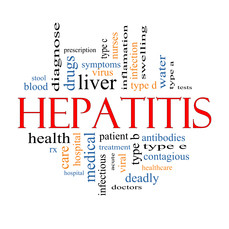The very first letter that I ever received from a teen posed the question, “Can you help me to feel that my existence is worth something?” Every one is waiting for a miracle: the need to noticed; the hunger to be held; forgiveness. Each of us has a wish we whisper or a secret we stash on the top shelf of our “closets.” This ten minute talk, given at a BBYO convention in south Florida, explores this theme.
2014 June
EverydayHealth.com asked me to share my story and perspective on living with HIV for a video series they were making. In it, I share some tips on how I take care of myself to ensure I’m as healthy as possible.
The video turned out great and hopefully can help someone struggling with how to deal with HIV.

Name:
Hilary
Age:
16
Who Are You?
I am a believer, walking through this magical journey called “life.”
Whose arms do you fall into?
I fall into the arms of my parents. They are always there to support me and love me for who I am. Love comes and goes, but my parents will always be there to pick up the pieces.
What is the one miracle you are waiting for?
I am waiting for the plague of bullying to stop. I am sick and tired of seeing the suicides of victims of bullying.
What is your weapon?
My weapon is my outspoken nature. I will never let someone force me into a situation I do not believe in.
Whom do you miss the most?
I miss my grandmother. She has been dead for 9 years. There isn’t a day in the world I don’t think about her.
What are you scared of?
I’m scared that I won’t have enough time to see and experience everything.
What is your favorite memory?
My favorite memory has not been made yet. I have a lot of good memories, but I’m still creating my favorite.
When was the last time God spoke to you and what did He say?
God spoke to me when I saw you speak at my youth group convention. He spoke through you by telling us your amazing and inspiring story of courage and hope.
What words are you holding onto in your pockets?
I’m holding onto “You are the best you can be.” It always makes me feel better when I am feeling depressed.
What’s the best advice you’ve ever been given?
I know it sounds corny but I love the phrase, “when one door closes another opens.” It always motivates me through all my rejections and hardships.
What advice would you give to your parents that will help them in raising you?
They’re already amazing, I have no advice.
Is there sometimes an emptiness inside you and what does it feel like?
It feels like something eating away at my happiness.
Are you enough?
Yes, I am. I am enough because I believe in everything I do. Sometimes I doubt myself, but I know I have a good head on my shoulders and everything will work out in the end.

Fun fact: The Pap smear is named after the physician George Papanicolaou, who introduced this technique in 1949.
This week’s STI topic is dedicated to Mr. Pap, because his technique is used as a way to diagnose trichomoniasis.
Trichomoniasis, one of the most common STIs, and often excluded from STD education, is caused by a protozoan parasite called trichomonas vaginalis. That’s why it’s sometimes given the name “TV.”
It’s more often referred to as “trich” — pronounced “trick.”
This parasite can live in the urogenital tract of males and females and infect any sexually active person, especially those who are not using protection or who have multiple partners.
Trich is considered the one of the most common curable STIs. Over 180 million cases of trichomoniasis occur worldwide per year. In the United States, an estimated 3.7 million people have the infection, but only about 30% develop any symptoms of trichomoniasis.
The highest number of cases are seen in women between the ages of 16 and 35. Infection is more common in women than in men, and older women are more likely than younger women to have been infected.
The parasite is passed from an infected person to an uninfected person during sex. In women, the most commonly infected part of the body is the lower genital tract (vulva, vagina, or urethra), and in men, the most commonly infected body part is the inside of the penis (urethra). During sex, the parasite is usually transmitted from a penis to a vagina, or from a vagina to a penis, but it can also be passed from a vagina to another vagina. It is not common for the parasite to infect other body parts, like the hands, mouth, or anus because the parasite cannot survive in the mouth or rectum.
It is unclear why some people with the infection get symptoms while others do not, but it probably depends on factors like the person’s age and overall health. Infected people without symptoms can still pass the infection on to others.
Symptoms of trich can appear as early as 5 days after sex with an infected partner. Some people with symptoms get them up to 28 days after being infected, but others do not develop symptoms until much later. Symptoms can come and go. Trichomoniasis often goes undiagnosed because about 70% of infected people do not have any signs or symptoms.
In females, symptoms can include:
- abundant or frothy vaginal discharge ranging in color from gray to green to yellow, with a watery to milky consistency
- foul smelling vaginal discharge
- itching and tenderness in or around the vagina
- pain during sex
- bleeding after sex
- blood spotting in discharge
- frequent urination and pain during urination
- soreness or itching of the labia and inner thighs and groin area
- swollen labia
If you’re a female, it’s important for you to recognize both a normal vaginal discharge (it’s usually clear or whitish, has no bad odor, and causes no irritation) and one that might signal a problem.
Normal vaginal discharge has several purposes: cleaning and moistening the vagina, and helping to prevent and fight infections. Although it’s normal for the color, texture, and amount of vaginal fluids to vary throughout a girl’s menstrual cycle, some changes in discharge may indicate a problem.
Symptoms in men:
Trich is not very common in men, and males who have trichomoniasis often don’t show any symptoms, but if they do, symptoms can include:
- mild urethral itching
- mild burning after urination or ejaculation
- painful or difficult urination
- inflammation of the prostate gland
- pain and inflammation of the scrotum
Men may also be treated if they have ongoing symptoms of urethral burning or itching despite treatment for gonorrhea and chlamydia. The infection in men usually goes away on its own in a few weeks.
Occasionally, some men with trichomoniasis may develop prostatitis (swelling and irritation of the prostate gland) or epididymitis (swelling of the epididymis, the tube that connects the testicle with the vas deferens) from the infection.
Because trichomoniasis is an STI spread through sexual contact, the best way to prevent it is to abstain from having sex. Sexual contact with more than one partner or with someone who has more than one partner increases the risk of contracting any STI.
When properly and consistently used, condoms decrease the risk of STIs. Latex condoms provide greater protection than natural-membrane condoms. The female condom, made of polyurethane, is also considered effective against STIs.
Using douche can actually increase a female’s risk of contracting STIs because it can change the natural flora of the vagina and may flush bacteria higher into the genital tract.
A teen being treated for trich also should be tested for other STIs, and should have time alone with the doctor to openly discuss issues like sexual activity. Not all teens will be comfortable talking with parents about these issues. But it’s important to encourage them to talk to a trusted adult who can provide the facts.
Fun fact: Trich is easily visible under the microscope. It paddles around using flagellae like oars.
It is not possible to diagnose trichomoniasis based on symptoms alone. For both men and women, your primary care doctor or another trusted health care provider must do a check and a laboratory test to diagnose trichomoniasis.
Your doctor can determine whether there is a trichomoniasis infection by performing a pelvic or genital examination and by testing a sample of vaginal or urethral discharge. In females, the infection also may be detected on a Pap smear.
Trichomoniasis can be cured with a single dose of prescription antibiotic medication, either metronidazole or tinidazole, which can be taken by mouth. Both sexual partners should be considered infected and treated at the same time, even if one has no symptoms. People being treated should not have sex until they have finished their treatment and no longer have symptoms.
People who have been treated for trich can get it again. About 1 in 5 people get infected again within 3 months after treatment. To avoid getting re-infected, make sure that all of your sex partners get treated too, and wait to have sex again until all of your symptoms go away (about a week). Get checked again if your symptoms come back.
Because many STIs might not cause obvious symptoms, teens often don’t know when they’re infected. It’s important for all teens who have had sex to get screened regularly for STIs so that they don’t lead to other more serious health problems.
If a patient has trichomoniasis, a doctor usually will also test for other STIs like gonorrhea and chlamydia because these STIs sometimes occur together.
It’s better to prevent trichomoniasis than to treat it, of course. The only way to completely prevent infection is to not have any type of sexual intercourse. Second to that, it’s recommended that you limit the number of sexual partners. Finally, using latex condoms correctly every time you have sex will help reduce the risk of getting or spreading trichomoniasis. However, condoms don’t cover everything, and it is possible to get or spread this infection even when using a condom.
Condoms are the only birth control method that will help prevent trich.
- Trichomoniasis is considered one of the most common curable STIs.
- It is caused by Trichomonas vaginalis, a motile, flagellate protozoan
- Symptoms occur more often in women than in men, although both women and men may be asymptomatic
- Older women are more likely than younger women to have been infected.
- The disease is also recognized as a potential cause of adverse pregnancy outcomes, male and female infertility, and atypical pelvic inflammatory states.
- The only sure way to prevent sexually transmitted infections is to avoid having sex entirely.
- Trichomoniasis can be uncomfortable and can make someone who has it more susceptible to HIV, the virus that causes the Acquired Immune Deficiency Syndrome (AIDS).
- To avoid getting re-infected, make sure that all of your sex partners get treated too, and wait to have sex again until all of your symptoms go away (about a week).
- KidsHealth.org, Parents – Trichomoniasis
- KidsHealth.org, Teens – Trichomoniasis
- U.S. National Library of Medicine – Trichomoniasis
- “Sexually Transmitted Infections – The Facts” by David Barlow
- Center for Disease Control – Trichomoniasis
- Clinical Key – Trichomoniasis
- KidsHealth.org – Vaginal Discharge: What’s Normal, What’s Not
- Wikipedia – Georgios Papanikolaou

When my friend Fred was a little boy in 1969 in Cincinnati, Ohio, his family got a brand new typewriter. After everybody tried it out, it was finally Fred’s turn, because he was the youngest. So he sat down to plunk out some words and typed a letter to his best friend, Billy.
“Dear Billy, I love you.”
His father, looking over his shoulder, pulled the paper out of the carriage and ripped it up, saying, “You can’t love another boy.”
At the exact same time in NYC, another police raid was occurring on a gay bar in Greenwich Village. In 1969, it was both illegal to serve alcohol to gay people and for gay people to dance with one another in public. At 1:20 in the morning on June 28, the Stonewall Inn was raided by police; but this time the gay patrons fought back. This became the lynchpin moment of the modern Gay Rights movement.
A year after Stonewall, the first Gay Pride March was held by the Christopher Street Liberation Day Committee to commemorate the riots. I was seven years old and had my first crush on another boy.
For the 10-year anniversary of Stonewall, thousands of people attended the first National March on Washington for Lesbian and Gay Rights. I was a gay teen trapped in my closet. I was different. I was alone, no longer invulnerable to the laughter and teasing of the bullies in my high school hallways.
In 1993, after a decade of AIDS awareness, the government had just passed ‘Don’t Ask, Don’t Tell.’ At that time, I was a young man living with HIV, watching my boyfriend, Michael, die of AIDS. My family didn’t know about him. They didn’t ask. I didn’t tell.
In 2004, for the first time, same sex marriage laws were officially passed in the state of Massachusetts. I was 35 years old and already a public speaker, collecting the stories of other gay teens trapped inside their closets. In one particular email from a teenager named Eric, he described his fear of coming out: “My fingers are shaking as i type these words on my keyboard.” He used a small “i” to describe himself.
In 2008, in California, voters pass ballot initiative Proposition 8 making gay marriage illegal.
“Glee” became the biggest show on TV and Gay/Straight Alliances in high schools were becoming safe havens for teens to freely express themselves. Yet, in every GSA meeting in which I presented, there was always a gay teen in the high school still afraid to walk in the door.
In 2010, 4 more states recognized same sex marriage. At the same time, Tyler Clementi, a Rutgers University student, committed suicide after his sexual encounter with another man was videotaped and displayed.
Last year, Edie Windsor brought her fight against DOMA all the way to the US Supreme Court and won. The Federal Government now recognizes same-sex marriages in states where they are legal. I had the privilege of driving Edie home a few days later where she told me, “If I can’t have Thea (her partner) with me, I get to have the love of the entire community.” Yet many of my transgender friends tell me they still have fear every time they look for a public bathroom.
Today, 19 states plus DC (44% of Americans) have adopted full marriage equality. There has been a significant increase in corporate sponsorship and support from major companies at pride parades. And soon we hope to pass the Employment Non-Discrimination Act (ENDA) which will provide basic protections against workplace discrimination on the basis of sexual orientation or gender identity.
It’s been a time of unprecedented progress. Through the last 45 years, the LGBTQ community has remained visible and vigilant. But with every step forward, there have been many setbacks.
In order to achieve true equality, we must not only remember how far we’ve come, but also honor the lives of those along the way who stood – and are still standing – in the shadows.
This week, take a moment to type the words, “I love you.”
Share them with someone.
And as you do, pay attention to the struggle and the grace which gave you the freedom to type those very words.
As stories are unscrolled
And handed down to newer generations
Life presents itself to life
Even when life belies its true beauty
See its true beauty
Let no poetry of pride go unnoticed
One summer, I asked some teenage campers to tell me their thoughts about love. Here’s what they taught me. The song, “Ain’t Love Easy?” was written by Carol Hall, performed live at St. Peter’s Church in New York City.

Name:
Raynee
Age:
15
Who Are You?
A girl still trying to find herself
Whose arms do you fall into?
no one’s
What is the one miracle you are waiting for?
For peace in the world and for people to start accepting people for who they really are
What is your weapon?
Don’t have one
Whom do you miss the most?
My best friend who used to be there and now isn’t. She betrayed my trust twice and 2 of the worst experiences in my life
What are you scared of?
Being alone for the rest of my life or of people not accepting me for my insecurities
What is your favorite memory?
Being young and not worrying about teenage problems
When was the last time God spoke to you and what did He say?
He never spoke to me and i don’t think He ever will
What words are you holding onto in your pockets?
unworthy, not good enough, shy
What’s the best advice you’ve ever been given?
To be myself and not worry what other people say about me
What advice would you give to your parents that will help them in raising you?
To start believing me when i say something, or to start taking me more seriously
Is there sometimes an emptiness inside you and what does it feel like?
Oh ya! When I’m in fights that’s when i start feeling the emptiness. It feels as if nothing is inside of me and i just want to break down and cry, but tears never come
Are you enough?
In some ways I sometimes think I’m not and never feel like doing anything or think that people don’t think about me.

The word hepatitis means an inflammation of the liver. It can be caused by one of many things — including a bacterial infection, liver injury caused by a toxin (poison), and even an attack on the liver by the body’s own immune system. However, hepatitis usually is caused by a virus. The three most common hepatitis viruses are hepatitis A, hepatitis B, or hepatitis C. Two other types of hepatitis virus, D and E, are rare in the United States.
Hepatitis A is usually the least serious of the three main types of hepatitis, but can make you very ill. Unlike some other hepatitis viruses, hepatitis A rarely leads to permanent liver damage. Within a few weeks, the symptoms will have gone away on their own and the virus will no longer be in your system. Once someone has recovered from a hepatitis A infection, that person has immunity to the virus, meaning he or she will probably never get it again. People are also protected against hepatitis A if they’ve been vaccinated against it.
Hepatitis A is found in fecal matter, even in microscopic amounts. Infected individuals shed large amounts of the virus in their stool, starting about two weeks before symptoms present, and continue shedding the virus in their stool for one to three months.
So how exactly does a person get microscopic amounts of fecal matter in their system during sex? One obvious answer is anal sex without a condom. But here are some less obvious things to consider:
- Rimming: the act of using one’s tongue on the anal rim of another person in order to gain and/or give sexual pleasure.
- Anal fingering: the act of sticking one’s finger (or, in some cases, the fist) in the anus and start to move in and out like people do during sex.
- Handling used condoms and dildos.
And here are the non-sexual routes of transmission:
- The hepatitis A virus also may be spread by ingestion of food or water that is contaminated by infected individuals;
- or by eating food or drinking water that’s been contaminated with feces. As disgusting as that sounds, though, hepatitis A is actually considered less destructive than some other hepatitis viruses.
- People traveling in countries with poor hygiene risk getting it too.
Here’s the thing about the symptoms of Hepatitis A: you are most infectious before your symptoms appear. Once those symptoms do appear, they can be so mild that you may not realize you have it. In addition, people with hepatitis A may not show any symptoms, so the infection can go undiagnosed.
Any hepatitis infection causes inflammation of the liver, which means that the liver becomes swollen and damaged and begins losing its ability to function. People with hepatitis often get symptoms similar to those caused by other virus infections, such as weakness, fatugue, and nausea. Because the symptoms of hepatitis are similar to those from other conditions, it’s easy for someone who has it to confuse it with another illness.
Even when infected people don’t have any symptoms, they can still pass the disease on to others.
The incubation period for hepatitis (how long it takes from when someone is infected to when symptoms first appear) varies — some people might not feel any different, while others may notice symptoms anywhere from 15 days to 4 months after getting the disease, depending on the type of hepatitis.
Symptoms of hepatitis A include:
- yellowing of the skin and eyes, known as jaundice
- mild flu-like symptoms
- fever
- diarrhea
- fatigue
- nausea, vomiting, and lack of appetite
- abdominal pain (on the upper right side)
- light-colored bowel movements
- dark-colored urine
- weight loss
- may feel sick around tobacco smoke, alcohol and fatty foods.
The illness can last many weeks and take many months before you get your strength back.
There is a vaccine for Hepatitis A. Hepatitis A does not cause chronic or persistent infection of the liver. Once a person has recovered from hepatitis A, he or she is immune to reinfection with hepatitis A for life. This is true because effective antibodies are developed against the hepatitis A virus. After infection with hepatitis A, these antibodies provide life-long protection against the virus. The ability of the body to make protective antibodies after infection with hepatitis A led researchers to develop vaccines against the disease.
The hepatitis A vaccine is made of killed hepatitis A viruses and causes the body’s immune system to produce antibodies against the hepatitis A virus. In most vaccine recipients, antibodies start to develop immediately after the first dose but do not reach protective levels for 2 to 4 weeks. A second dose of the vaccine is recommended at least six months after the first dose to provide prolonged protection.
Two hepatitis A vaccines are currently available in the United States; these vaccines are hepatitis A vaccine injections of Havrix or Vaqta. The vaccine is given as an injection into the deltoid muscle of the arm. Both Havrix and Vaqta provide high-level protection against hepatitis A. There is also a combination vaccine called hepatitis-b-hepatitis-a-vaccine injection (Twinrix) that protects against both hepatitis A and hepatitis B. The dosing schedule for Twinrix is different from the other hepatitis A vaccines and requires three doses over six months.
In the United States, hepatitis A vaccination is recommended for all children at one year of age. Vaccination also is recommended for individuals in high-risk settings. Examples include:
- travelers to developing countries,
- men who have sex with men,
- users of intravenous drugs,
- persons needing frequent blood products, and
- people who have chronic liver disease.
Side effects of the hepatitis A vaccine usually are mild. Soreness at the site of injection is common. Less commonly, recipients may complain of a headache or fatigue. Serious allergic reactions are possible, but are rare.
A blood test before being vaccinated shows if you’ve picked up the virus already. If you have, you already are immune and don’t need the vaccine. Hepatitis vaccines are safe if you have HIV, but can briefly affect your viral load.
After 10 years, a booster is needed.
Hepatitis B (HBV) is a more serious infection that also attacks the liver. It may lead to a condition called cirrhosis (permanent scarring of the liver) or liver cancer, both of which cause severe illness and even death.
There’s no effective cure for hepatitis B, although people who have had the hepatitis B vaccine are protected against it. In most cases, teens who get hepatitis B will recover from the disease and may develop a natural immunity to future hepatitis B infections. But some people will have the condition forever. Medicines can help some people with hepatitis B get rid of the virus.
Hepatitis B is extremely contagious. Listen up, here’s what you need to know:
Hepatitis B virus (HBV) is transmitted from person to person through five body fluids: semen (including pre-cum), vaginal fluid, urine and saliva.
In the United States, the most common way people get infected with HBV is through unprotected sex with someone who has the disease. In other words, contact of mucous membranes with an infected person’s fluids: as you read above – semen (including pre-cum), vaginal fluid, urine and saliva.
Another way to explain it is:
- Kissing, anal, oral and vaginal intercourse, rimming and watersports.
- People who share infected needles are also at risk of becoming infected because it’s likely that the needles they use will not have been sterilized.
- Inadvertent exposure to infected blood or body fluids may also occur during tattooing, body piercing, or when sharing razors or toothbrushes (blood particles) with an infected person.
At first, people are usually asymptomatic; they can have the virus for between one and six months before showing any symptoms. In some cases, symptoms can appear within 4 weeks. It’s a flu-like illness characterized by:
- extreme fatigue
- headache
- fever
- nausea and vomiting
- loss of appetite
- yellowing of skin and whites of eyes (jaundice)
- clay-colored stool
- very dark urine
- abdominal pain
The majority of people infected with Hepatitis B recover from their symptoms, suffer no lasting damage and stop being infectious. In most cases, the infection clears in 4-8 weeks. However some people (1 in 10) remain contagious (carriers) for life, which means they feel fine but stay infectious to others. Carriers run a small risk of getting cirrhosis, liver cancer or liver failure. One in 100 die from it.
Vaccination has reduced the number of new cases of hepatitis B by more than 75% in the United States. The hepatitis B vaccine contains a protein (antigen) that stimulates the body to make protective antibodies. Examples of hepatitis B vaccines available in the United States include hepatitis B vaccine-injection Engerix-B and Recombivax-HB. Three doses (given at 0, 1, and 6 months) are necessary to assure protection.
There are also combination vaccines on the market that provide protection against hepatitis B and other diseases. For example:
- Hepatitis-b-hepatitis-a-vaccine injection (Twinrix), which provides protection against both hepatitis A and hepatitis B;
- Haemophilus B/hepatitis B vaccine – injection (Comvax) provides protection against hepatitis B and Haemophilus influenzae type b (a cause of meningitis; and
- Pediarix provides protection against hepatitis B, tetanus, pertussis and polio.
Hepatitis B vaccines are effective and safe. Most vaccinated individuals develop protective antibodies when they get the vaccine and are protected from infection with hepatitis B.
A blood test for hepatitis B antibodies is recommended after vaccination is completed to ensure that antibodies have been produced. For the few who do not form antibodies, revaccination may improve the response, especially in infants. The vaccine works for about 95% of people. However, a small proportion of individuals will never respond to hepatitis B vaccination. The older you are, or if you have HIV, the less effective it can be. (If you’ve read this far, I’m one of those people.)
Side effects from the vaccine usually are mild, primarily soreness at the site of injection. The risk of serious allergic reaction is less than one per million doses.
In the United States, hepatitis B vaccination is recommended for all infants at birth. Older children and adolescents should receive the vaccine if they did not receive it at birth. Adults in high-risk situations also are advised to receive hepatitis B vaccine.
Some countries have a high prevalence of hepatitis B in their population. Travelers who visit these countries for a prolonged period of time (usually 6 months or longer) and those who may be exposed to blood or semen should consider vaccination.
After five years, you’ll need a booster injection.
Hepatitis C is the most serious type of hepatitis. Like hepatitis B, hepatitis C can lead to cirrhosis or liver cancer. An estimated 4.1 million Americans are currently infected with the virus. It’s now one of the most common reasons for liver transplants in adults. Every year, thousands of people in the United States die from HCV. And there’s no cure and no vaccine.
The hepatitis C virus (HCV) is transmitted from person to person through blood.
- The most common way people become infected is through sharing drug paraphernalia such as needles.
- People also get hepatitis C after having unprotected sex with an infected partner.
- Also anal sex without a condom if there is blood.
- A lesser known fact is that you can Hepatitis C from fisting, if blood is present.
- Inadvertent exposure to infected blood or body fluids may also occur during tattooing, body piercing, or when sharing razors or toothbrushes (blood particles) with an infected person.
- Before July 1992, many people got HCV through blood transfusions, but better blood screening and handling procedures now mean that this rarely happens.
- Or if you were treated for clotting problems with a blood product made before 1987.
- Sometimes, mothers with hepatitis C pass the virus along to their babies during birth.
A doctor will test for antibodies, which can take up to 6 months to appear in the blood. Sometimes, a doctor will take a liver biopsy.
The medicines currently used to treat hepatitis C (6 – 12 months of Alpha Interferon and Ribavirin) are effective in controlling the disease in some people. However, hepatitis C treatments are not very easy to take, especially because some require frequent injections.There is no vaccine for Hepatitis C.
The hepatitis A virus (HAV) is transmitted through the feces (poop) of infected individuals. Unlike some other hepatitis viruses, hepatitis A rarely leads to permanent liver damage.
The hepatitis B virus (HBV) is transmitted from person to person through five body fluids: semen (including pre-cum), vaginal fluid, urine and saliva.
The hepatitis C virus (HCV) is transmitted through blood and sharing infected needles. It is not as easy to get through sex as A and B.
Even when infected people don’t have any symptoms, they can still pass the disease on to others.
Get Vaccinated. Vaccinations can protect you from A and B. Today, all kids in the United States are routinely vaccinated against hepatitis B at birth and against hepatitis A when they’re between 1 and 2 years old.
A blood test for hepatitis B antibodies is recommended after vaccination to ensure that antibodies have been produced.
In addition to getting vaccinations against hepatitis A and B, here’s how to protect yourself against hepatitis virus infection:
- Don’t have unprotected sex.
- Avoid intravenous drug use and sharing of drug paraphernalia.
- Wash your hands before handling food and after using the bathroom.
- Be sure tattoo or piercing shops sterilize needles and other equipment properly.
- Don’t share toothbrushes or razors. Hepatitis can be transmitted through sores or cuts.
- Avoid eating raw shellfish (such as clams or oysters). You could put yourself at risk for hepatitis A if the shellfish was harvested from contaminated water.
DISCLAIMER: The information contained in this post is intended to inform readers and is not intended to replace specific advice from a health care professional.

Your only access to eternity is a single moment. Enjoy this surprising journey. Don’t settle for anything less.
– Tom Todoroff
The night before I sold my parent’s house, the place in which I grew up, I went from room to room to say goodbye. It felt odd at first, but I thanked each doorway for being a passageway to a bigger life. As I moved about the house, so many memories came flooding back: the place I first prayed to God, the backyard grass where I sat with my grandfather on late Sabbath afternoons, the corner of my big sister’s closet where I’d hide away to steal a peak at a picture of a shirtless guy inside one of her ‘Cosmo’ magazines.
Still, the sounds are what I miss the most. The gentle echo of the linen closet door as it shut and clicked into place. The creak of the rusty screen door opening onto the porch outside the kitchen, when my mother would put out the garbage at night. My father’s sock drawer sliding shut.
On a private midnight, look behind you
There are embers still glowing
Buried but breathing
They are the memories of childhood
Like rubble stuck in your shoes
The trappings of time are tapping at your ankles
They have stowed along for the ride
Like the pastel scene when the sun finally gives up the sky
Certain memories capture your attention
Leave behind a captivating color
And guide you into the darkest hours
They are the deep river currents
Directing your dreams
Whatever you have is what you give to the world
You can only offer what you yourself have lived
You can only recover when you respect your past
Look behind you
Your childhood memories are catching up
Gathering in
Finding home
Let them remind you who you used to be
Let them renew the promises you forgot to keep
What is your favorite childhood memory?


